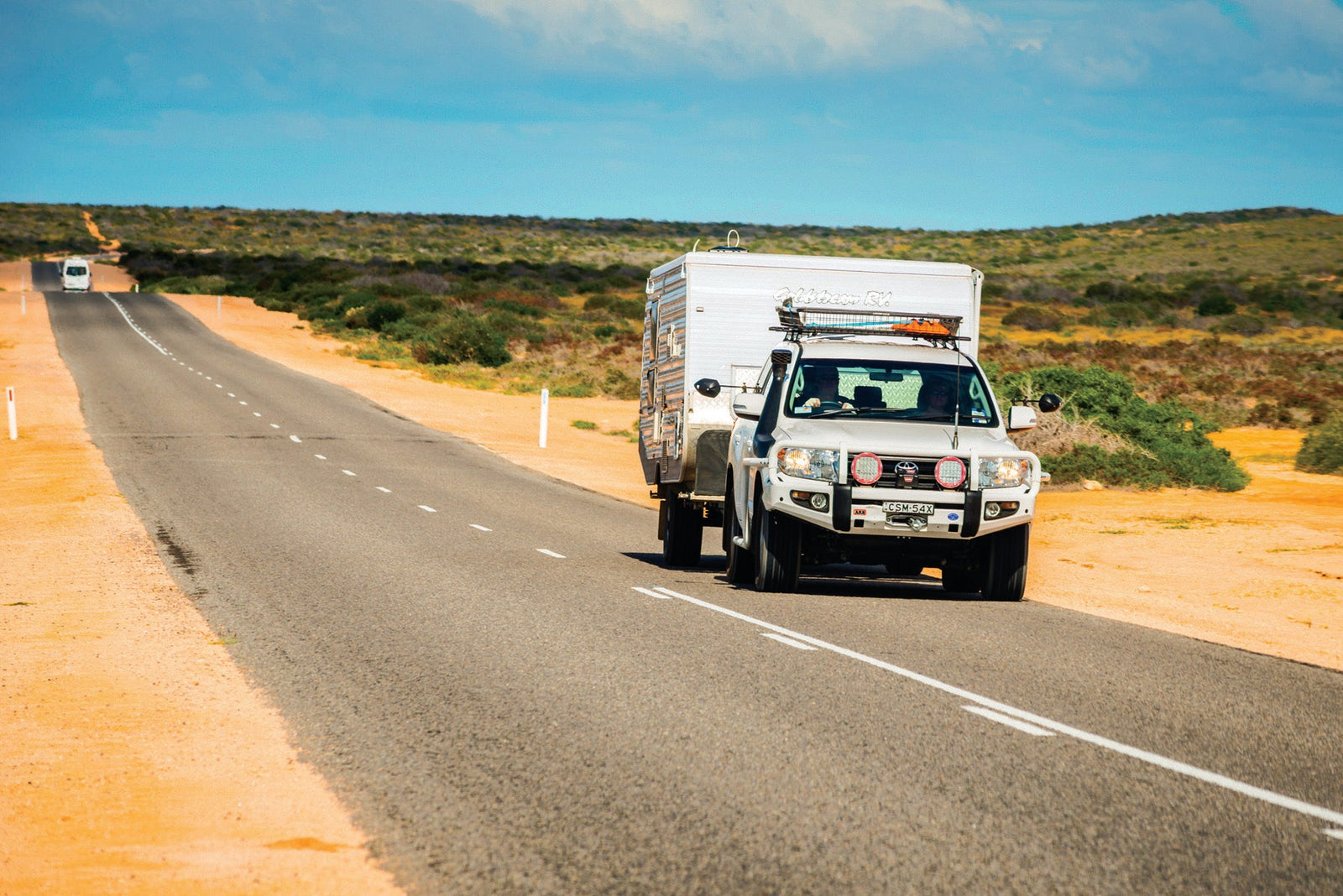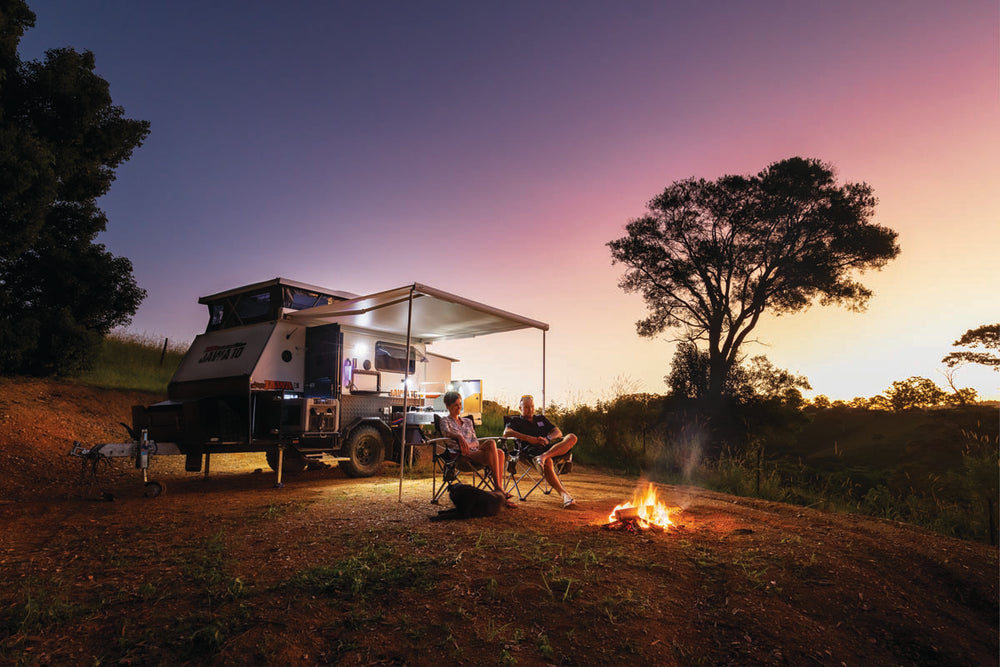Going Green

If you want to reduce your carbon footprint and turn your next road trip into an eco-friendly adventure, there are plenty of tips on how to ‘go green’. The mantra ‘Reduce, Refuse, Reuse, Recycle’ rings especially true when you’re on the road:
Reduce: Try to cut back on your use of plastics and find alternatives. Refuse: Try to say no to single-use plastics like bottles of water and straws. Reuse: When you do end up with a plastic item, reuse it as often as possible. Recycle: As a last resort, recycle plastic items when they can't be used anymore.
PLANNING
Before you leave, make sure you haven’t left anything on standby at home (like the TV) and unplug appliances that might use up unnecessary electricity.
Plan your route to minimise backtracking. Sometimes getting lost is a beautiful part of your journey, but backtracking can take its toll on your fuel bill and the environment.
Get your car serviced and have a safety check done — yes, it’s an obvious tip, but as well as the safety side, it’ll also ensure your vehicle is running as efficiently as possible. A poorly tuned engine will use more fuel and produce more emissions than one that is running properly.
Check that your tyres are filled to the correct pressure — it will save fuel and reduce your carbon emissions.
If you’re not going to use it, lose it. If you have any extras, including accessories like a bike rack, which you won’t use, leave them at home as the more weight you carry, the more fuel you’ll use.
DRIVING
Slow down — speeding will cost you more in fuel and lose you eco-points by increasing your carbon footprint. On that note, also avoid aggressive driving. Aggressive acceleration and harsh braking are a close second to speeding in terms of unnecessary fuel use. Accelerate slowly and smoothly, then get into high gear as quickly as possible.
If your car has cruise control, use it. It will be harder to absentmindedly speed (and get a ticket), you’ll have a smoother journey, and you’re less likely to do any harsh braking. However, turn it off on steep hills — efficiency is lost because cruise control tries to maintain even speeds.
Avoid using your fuel-guzzling air conditioning and heating as much as possible. Instead, park in the shade and open the windows in the heat or try adding another layer of clothing in the cold.
ON THE ROAD
Instead of reaching for plastic wrap, try eco-friendly beeswax wraps, or store leftovers in reusable containers. If you’re trying to switch to glass containers but already have plastic ones, don’t throw them away as it’s just adding to environmental problems. Keep reusing them.
Where possible, don’t buy bottles of water. Buy a reusable bottle (they make great souvenirs) and fill up at the tap.
With plastic straws, just say no, and buy a metal straw instead — another good souvenir.
Have your own ‘keep cup’ for when you need a takeaway coffee. You can even go one better by providing your own containers for takeaway meals.
Install solar panels and you’ll rarely need a generator again.
WASHING
Try washing your clothes while driving by placing them in a 10L bucket with a lid and woolwash. Let the natural road movement agitate the clothes. When you stop for the night, hang them out. Using woolwash also means you don’t need to rinse the clothes.
TOILETRIES
You know those tiny toiletries containers you have collected from hotels over the years? Don’t just throw them out. Use them and, if you can, refill them.
Before you buy cotton buds, check that the stick between the two cotton bits is not plastic.
Consider buying ‘bars’ of shampoo, conditioner, lotion, body wash, face wash and perfume. They are often sold without any packaging or come in refillable containers.
Look for products free of parabens, foaming agents like sodium lauryl sulfate, and microbeads (which are plastic and wind up in the ocean).
SHOPPING
Everyone knows to use reusable shopping bags by now, but if you get to the checkout and discover you’ve left them in the RV, just reload the trolley and unpack in the carpark.
If you must have a separate bag for fruit and veg, try using biodegradable ‘green’ bags or washable cloth bags. If plastic bags are your only choice, try to reuse them as rubbish bags in your van or as freezer bags.
Package-free bulk stores are becoming more popular. Take your own jar and top up on everything from flour and sugar to cereals, pasta, nuts, dried fruit and spices.
If you do run out of something while on the road, or break an essential item, why not replace it at the local op shop?
RUBBISH
Please don’t toss your rubbish out on the side of the road or leave it at a campsite. Take it with you — even the bits you think will break down. If they don’t come from where you have stopped, they don’t belong there.
There’s only one thing worse than someone who litters — someone who whinges about litterbugs, then leaves the rubbish there. Bin it and the world will thank you. Here’s a challenge — why not leave camp sites and picnic grounds better than you found them?
Poo trees. Yes, you heard right. Sadly, there are such things on Australian roads and in free camp sites and they are not okay. Bushes covered with bits of dirty toilet paper are disgusting and definitely not eco-friendly. Dig, do, bury and burn, people. Dig a hole, do your business, bury it and burn the paper — unless there’s a fire ban, in which case wrap up the paper and take it with you.
EXPLORING
A road trip doesn’t have to be all about driving. Try to explore by bike or foot when you get to a destination.
Going off-grid can be exciting, but if you want to be truly eco-friendly, where trails have been provided, stick to them. They have been created for a reason, usually to protect natural habitats and local wildlife.
Do not feed wildlife. Feeding wildlife leads to unhealthy animals that are reliant on humans and can no longer fend for themselves in their natural habitat.
If you are travelling with a fur baby, clean up after them. And don’t take them to areas where pets are banned. Even though your perfect pooch might not attack the local wildlife, their scent might damage the natural balance needed for local animals to survive.
GREEN LIVING ON THE ROAD
Lennai and Graeme Coleborn have been living on the road for just on a year and believe their current lifestyle is far more environmentally friendly than when they lived in a four-bedroom house and commuted to work.
“We travel very slowly as a rule, set up at a campground and do day trips,” they said. “We’re not in a rush to dash around doing the ‘Big Lap’ as we are fortunate to be living on the road. This means that we use less fuel than when we were at work and commuted a fair distance. When we are ‘freedom camping’ we are very frugal with both power and water and rely on solar energy and gas.”
The couple, who have been in Tasmania for the past eight months, have lots of eco-friendly ideas, from using environmentally friendly products to reusing small plastic bags for bin liners and as bags to collect rubbish off the beach on their walks.
“It saddens us to see rubbish left anywhere, let alone beautiful wild areas,” Lennai said. “I am frustrated by the lack of recycling facilities at most campgrounds and caravan parks. Even most councils don’t have recycling bins readily available in public places.
“We do our best to collect it and take it to the local waste transfer stations. This is usually a bit of a challenge as everything has to be separated out — you need to be very motivated to do this one. We were even charged $5 once as we had a tiny, tiny bag of rubbish as well.”
When it comes to saving water, the Coleborns have lots of ideas. When showering and waiting for the hot water, they collect the cold water in a bucket and use it for washing up. Plus, they do the ‘wet down, soap up, rinse down’ routine. They also keep the washing up water in the sink and use it for rinsing off dishes, and always turn the tap off when brushing their teeth.
Greasy dishes and the barbecue are wiped with paper towel which is then put it in a paper towel tube and used as fire starters.







